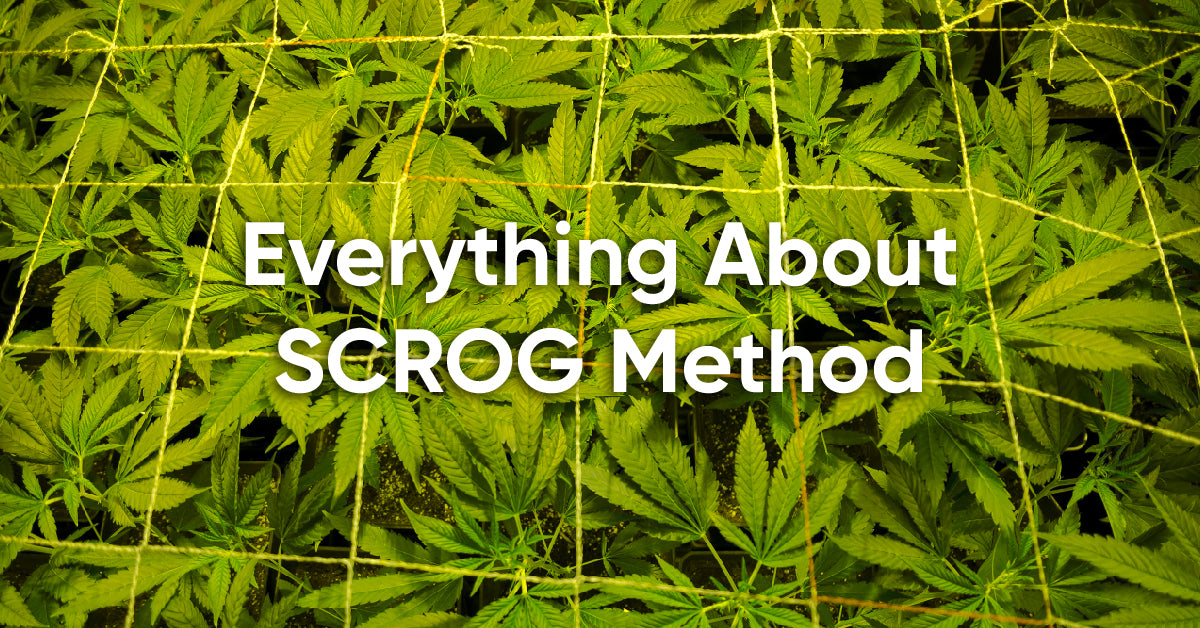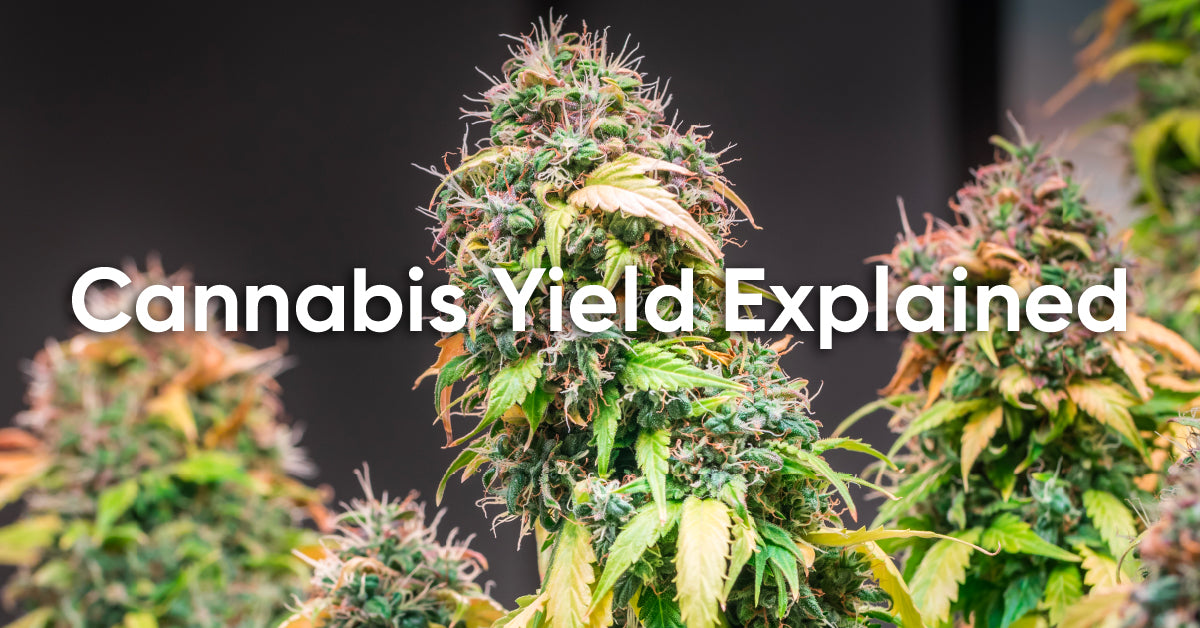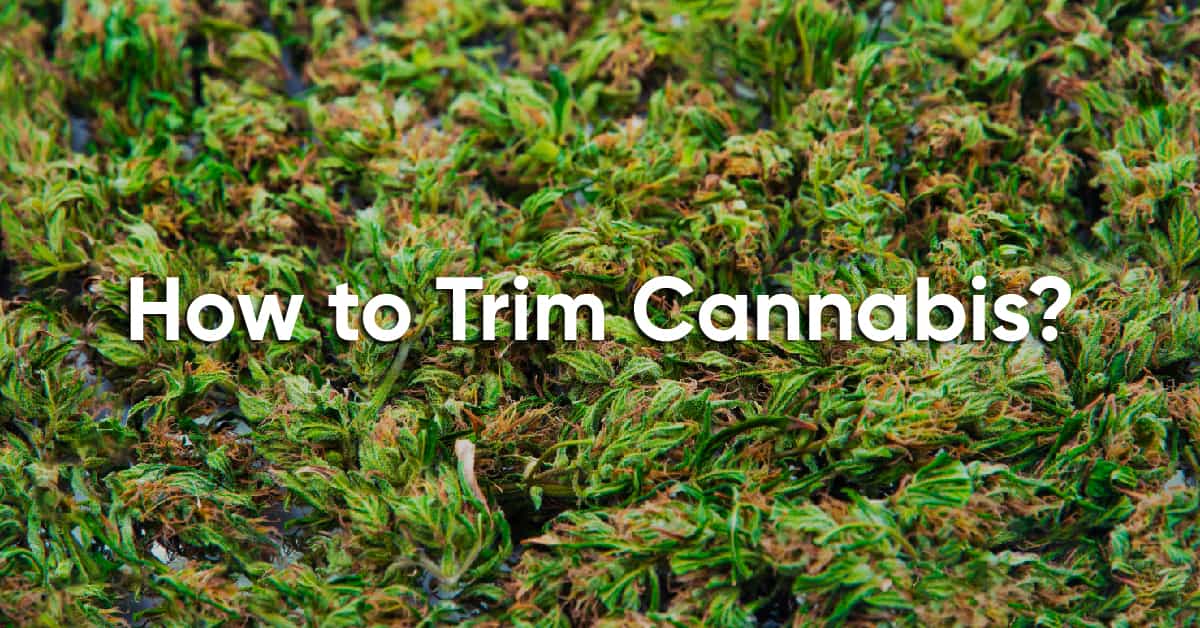Top 6 Cannabis Plant Training Techniques for Maximal Yield
Cannabis plant training is the easiest, most cost-effective way to increase the yields and quality of your final harvest! With the yield increases of up to 40%, who wouldn’t want to try training their weed plants?
There are many different training approaches and techniques. No matter which you choose, the goal of training cannabis plants is to help them achieve a more robust and stronger plant structure that is capable of producing high yields. Before you decide to upgrade your grow lights or even the entire indoor/outdoor grow system, give training a shot!
What is Cannabis Plant Training?
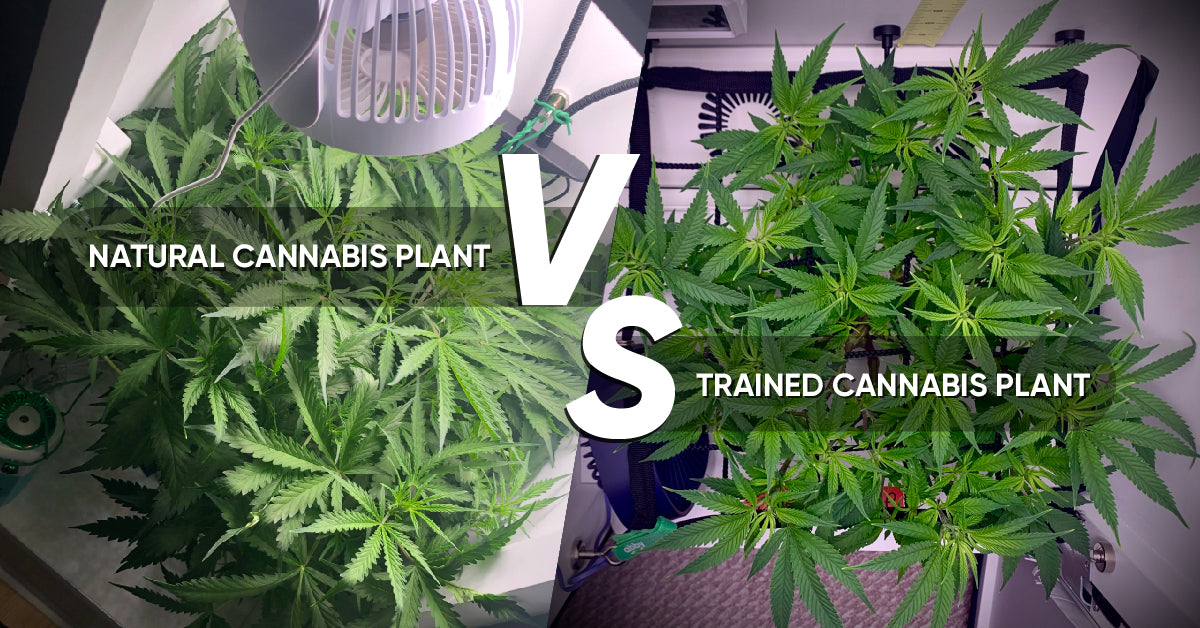
Training cannabis plants is the changing or manipulation of the plants' physical structure to help them produce more branches, that are capable of producing large top colas. Naturally, the cannabis plant grows in a singular-stalk/Christmas-tree shape; this is their natural way to optimize the absorption of sunlight. The natural structure will produce one large bud, and many subsequent smaller buds on the lower portion of the weed plant.
Why Training Cannabis Is Crucial for Growers?
As growers, we always want to make the most of our grow space and light resource, but the natural structure of cannabis is somewhat insufficient in doing this. Ideally, training cannabis will help produce a larger and more even canopy, which will bring endless benefits to plants, including efficient light source absorption/utilization, increased airflow, and the even distribution of water, nutrients and hormones. When the weed plant is trained, it removes the "apical dominance" of the main stalk. Instead of sending hormones, water, and nutrients directly to the main, tallest branch, your plant will distribute them more evenly, and in turn creates more even growth! This leads to the development of multiple robust main branches capable of producing large colas rather than small, larfy buds! Ultimately, this adds up to a better, and stronger plant with larger cannabis yields!
3 Major Cannabis Plant Training Techniques
1. Low Stress Training (LST)
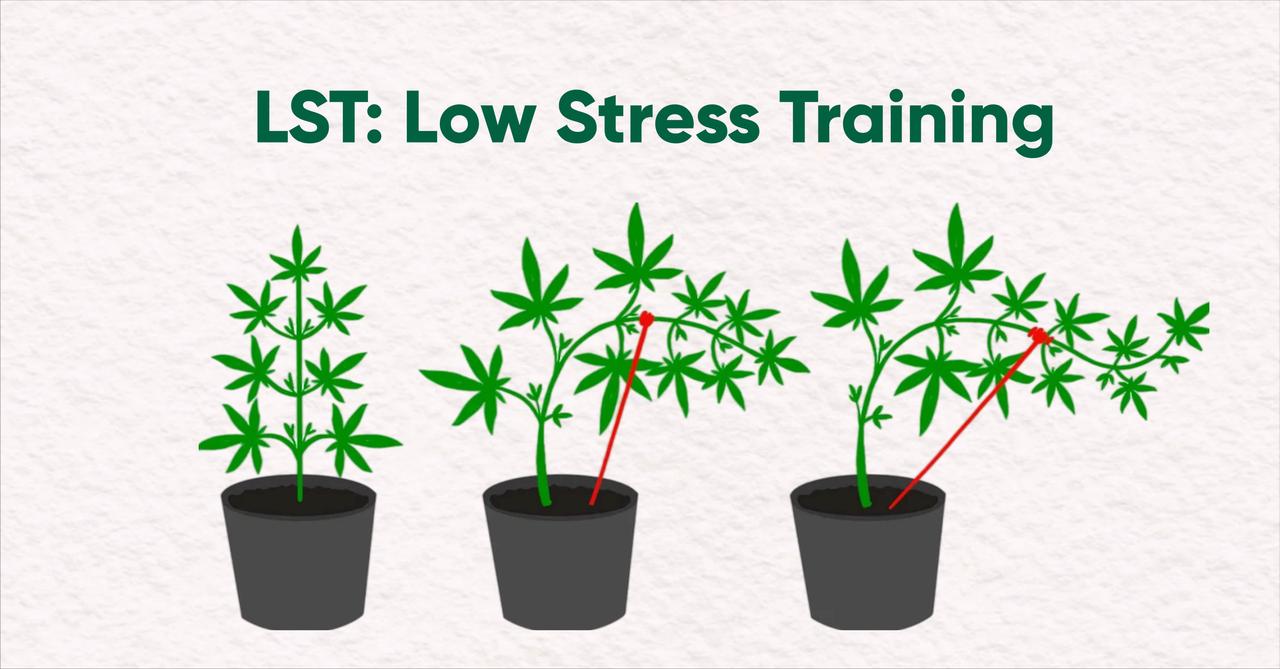
LST cannabis is the technique of bending the branches down, and away from the center of the plant. Then securing the branches in place so they are laying horizontally. Plant ties, trellis net, string, and twist ties are commonly used to secure the branches in place once they are bent downward. It's important to apply just enough stress to the branches to ensure they are not damaged.
There are some subcategories of the low stress training, often referred to as "SCROG," "SOG," and even "Manifold" training. As previously mentioned, low stress training breaks the apical dominance; when the main branch tips are bent lower than the others, it will allow the plant to distribute necessary resources more evenly. This results in a more even canopy, and also encourages smaller inner growth sites to develop into full branches!
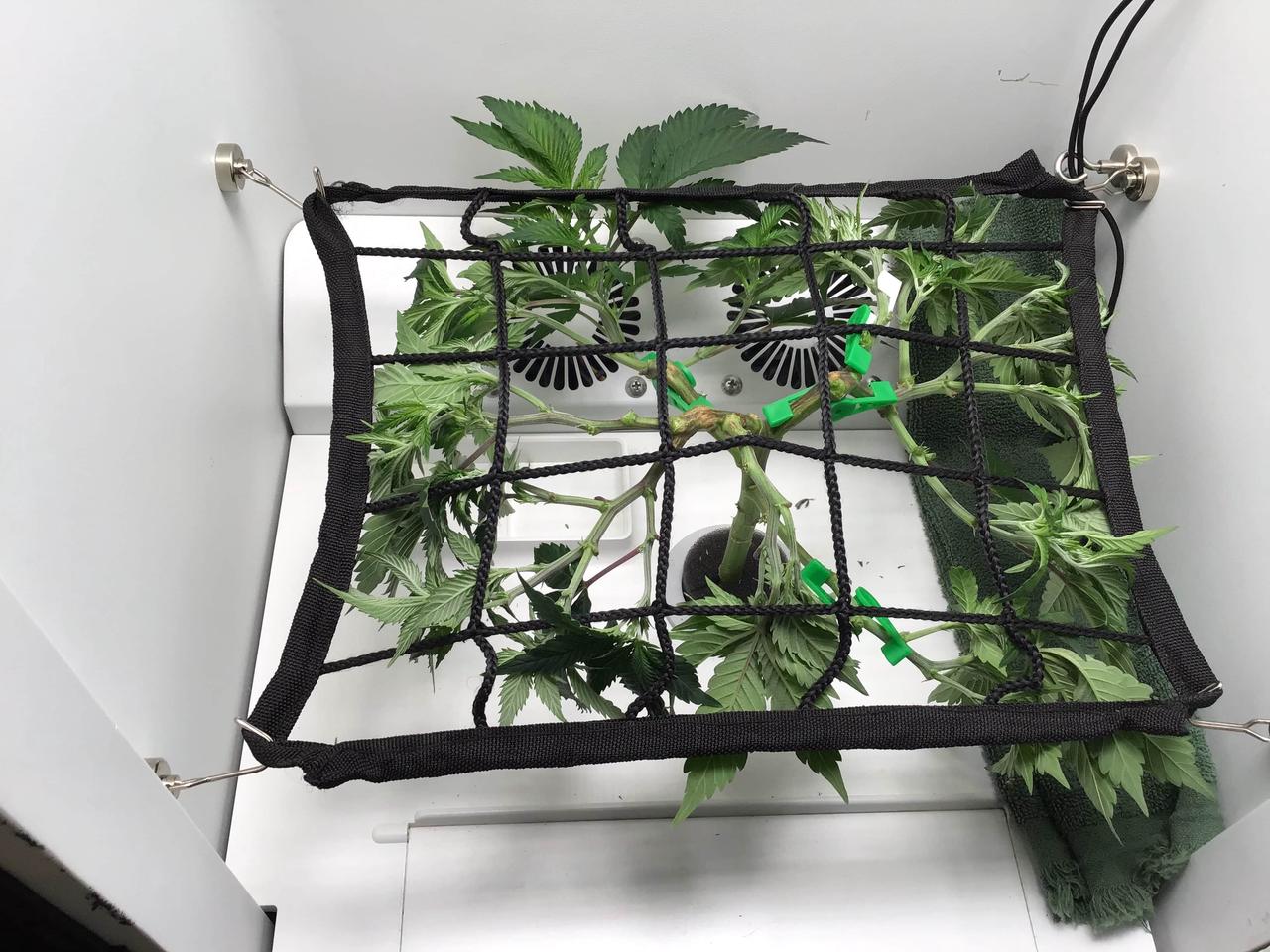
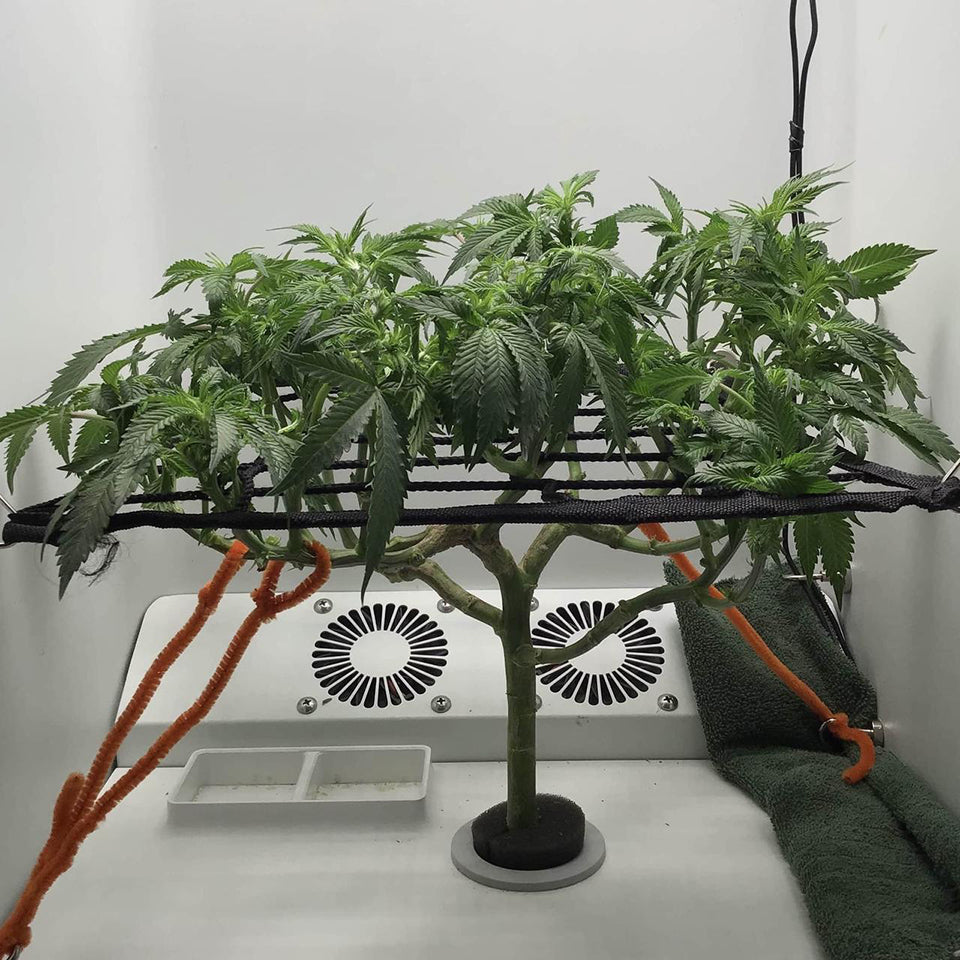
marijuana seedling (top)/clone (bottom) grown in Hey abby grow box
Image via Hey abby grower Alexander RastaMan
We always recommend Hey abby growers to start LST from the 3rd week of the vegetative stage:
1. Initially, use soft training ties to gently secure your plants in place. Don't tie them too tightly in case of any potential harm.
2. Over the next few days, observe your plants to see whether they're adjusting well to the LST techique. You may need to make slight adjustments to the ties or reposition branches as they grow. To address the concern of growers who may not have a way to track their plant's progress when they're away from home, Hey abby has introduced a WiFi smart camera. This innovative add-on allows you to check the plants' status within the indoor grow tent directly from the smartphone app.

3. As you progress into the 4th week, consider using a trellis net to further shape the plant, making all branches spread out in the desired direction.
4. When you're satisfied with the plant's shape, and it has reached the desired size, you can transition it to the cannabis flowering stage.
2. High Stress Training (HST)
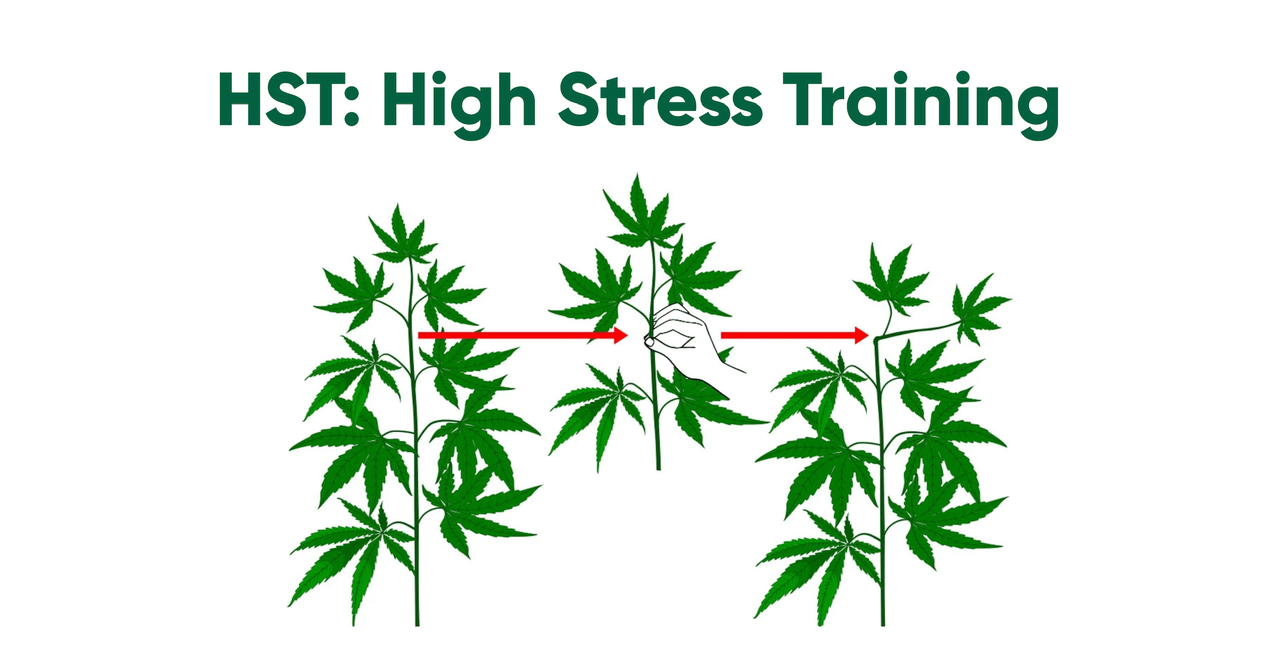
HST is a bit more advanced, and I do not recommend it to novice or beginner growers. HST is also referred to as "super-cropping." Similar to LST, you will be bending the branches, but at a much more extreme angel.
Because of the harsh angles used in HST, you will have to soften the tissue before bending the branch. Many growers use the “pinch-roll-bend” method: this is the practice of pinching the branch, and rolling it between your fingers to soften the tissue and allow the branch to bend more easily! While this process applies substantial stress to the plant, it can be advantageous for achieving a more uniform and sturdy canopy.
HST is best performed during the early to mid-vegetative stage of cannabis growth, ideally when the plants have developed a few nodes with healthy leaves. Avoid utilizing this technique during the flowering stage, as it can cause significant stress and potentially harm the yield.
3. Plant Tissue Removal
Removing plant tissue is probably the easiest and most common method of training, and it includes many techniques we've heard before, including topping, FIMing, deleafing and lollipopping.
Topping and FIMing
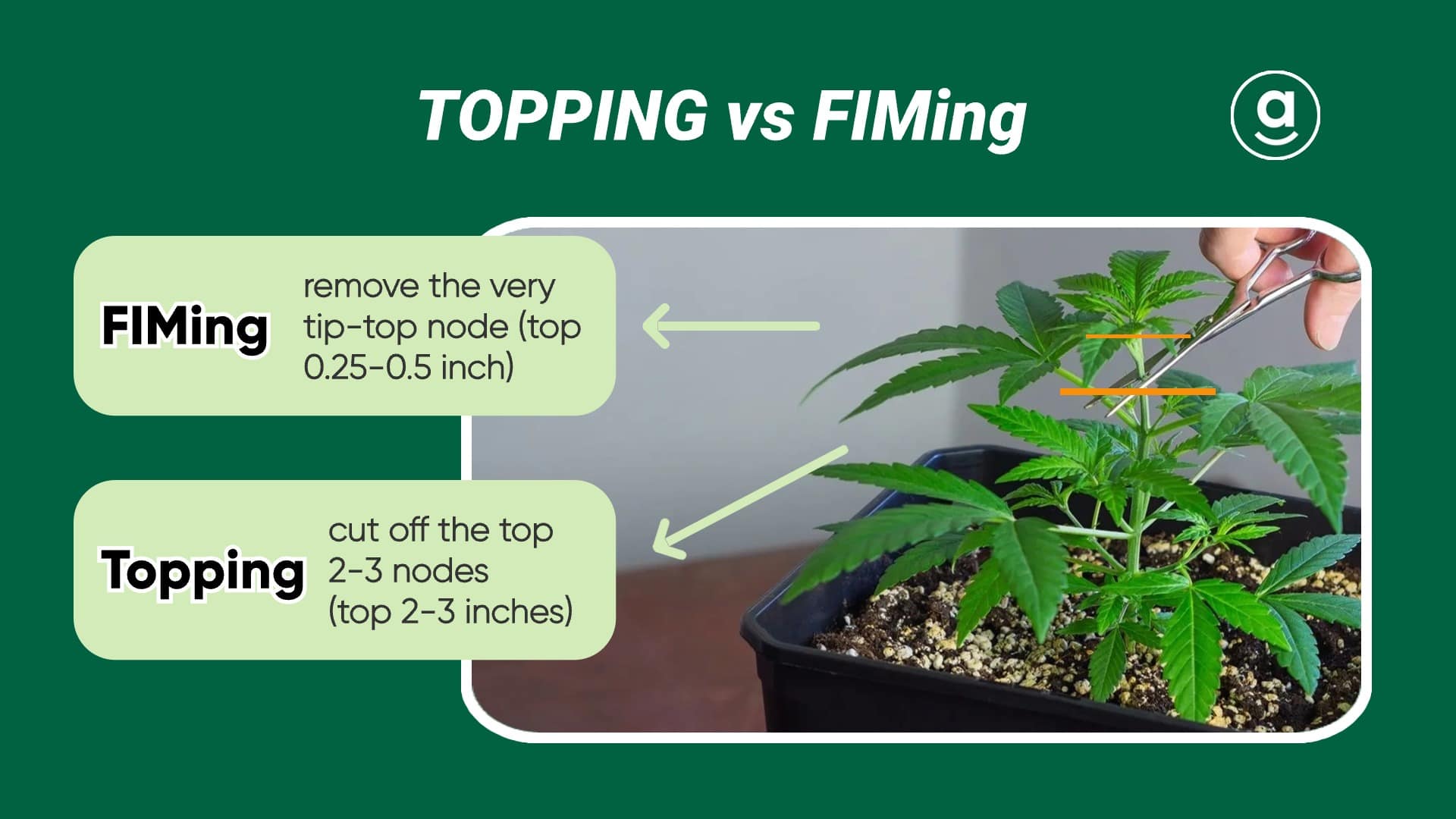
Topping your cannabis plant is cutting off the top of the main stalk, just above the first branch, usually around 4 inches from the top.
FIMing is similar to topping, but instead of removing multiple inches from the top of the main stalk, you will only cut or pinch off the top 2 nodes, or about 1 inch from the top of the main stalk.
Both cannabis FIMing and Topping achieve the same result, but topping is a bit more dramatic and will have a more profound result. While FIMing is a bit less invasive, it may need to be done multiple times throughout the veg growth stage. Both methods help achieve more lateral branch development by breaking the apical dominance, and tricking the plant into distributing resources more evenly.
Deleafing and Lollipopping
Deleafing and Lollipopping are two additional types of cannabis plant training that require tissue removal. Both of them can be used in conjunction with each other.

Image via Hey abby grower Chris Mafia
Deleafing, or defoliating cannabis, is the removal of large fan leaves from the upper portion of the plant. Removing these leaves will increase light penetration and airflow, which in turn brings faster and healthier growth!
When deciding which leaves to remove, consider the large ones attached to the main stalk or branch, just under a growth site. Once a growth site is able to branch off, or grow independently from the stalk or branch it originated from, it no longer relies on the leaf attached under it and can be safely removed! It's best to deleaf the plant throughout the veg stage, as well as the first 4 weeks of flowering!

Image via Hey abby grower MannyV650
Lolipoppiing should be done just before the plant is going into flowering, or within the first week of flowering. Lollipoppiing is the process of stripping the large branches of all the lower/weaker growth. Ideally you want to strip all the weak, thin, and small branches, and growth sites from the bottom 1/2 to 2/3 of the weed plant.
If you notice a smaller branch isn’t able to reach the level of the canopy, and absorb light as the taller branches, it can be removed. Or if a branch looks as if it is going to be unable to support a large top bud, it can also be removed!
Lollipopping helps the cannabis plant focus it resources on growing large top buds, rather than trying to support the lower weaker bud sites or get them caught up to the big boys. This technique is referred to as lollipopping because when done properly, the plant will resemble a lollipop. You'll see clean flowers and branches with growth only at the top!
Common Mistakes to Avoid When Training Cannabis
Mistakes are normal, and no grower is perfect; so they are somewhat inevitable. But, there are ways to help you avoid common mistakes when you train cannabis plants.
1. Don't Bend the Branches Too Hard
Often times growers will be a bit too aggressive with their cannabis plant training, and will end up damaging the plant. This commonly happens when attempting to bend the branches. If you bend them too hard or too fast, the branches will snap or break at their connection to the main stalk, potentially causing the loss of the trained branch. Thereforem, you need to be gentle when handling the plant, working slowly and precisely tto minimize the risk of damage. If you notice the branch feels woody or hard, then only bend it slightly. Next, readjust and bend it a bit more in the coming days.
2. Don't Go Too Far When Using the "Pinch-Roll” Method
Another common mistake when practicing HST on cannabis plants is pinching and rolling too hard! If you pinch the branch, or roll it in between your fingers too hard, you run the risk of damaging the brach beyond repair. The branch will most likely die off from the spot you pinched or rolled. Similar to bending branches, you need to be as gentle as possible when pinching and rolling. You don’t have to pinch down hard and completely flatten or squish the branch. All it needs is a gentle squeeze to help soften the tissue so it can receive the hard-angle bend that is trying to be achieved.
Conversely, some growers will be too delicate, and not bend or pinch the branches enough to achieve proper plant training! You have to find a happy medium, and take the feedback the plant gives you. If you feel a branch is weak, then back off a bit and try to train in small steps. If you feel a branch is very thick and hard, and doesn’t want to cooperate with the bending or pinching, then do the same. Train it in small steps rather than being too aggressive and breaking a branch off completely.
Final Words
In conclusion, cannabis plant training techniques is the key to unlocking your potential as a grower. By harnessing the power of LST, HST, and various plant tissue removal methods, you can sculpt your cannabis plants into robust, high-yielding beauties.
Remember, each strain is unique, and what works best for one may not be ideal for another. Experimentation is your ally, and patience is your virtue. With practice and a keen eye, you'll find the perfect balance between training and allowing your plants to express their genetic potential.
I hope that you are able to use this information and apply it to your grow successfully! Larger yields await you!
Get Weekly Expert Tips, and Grow Healthy Plants
Join our newsletter to get exclusive growing tips delivered directly to your inbox.

